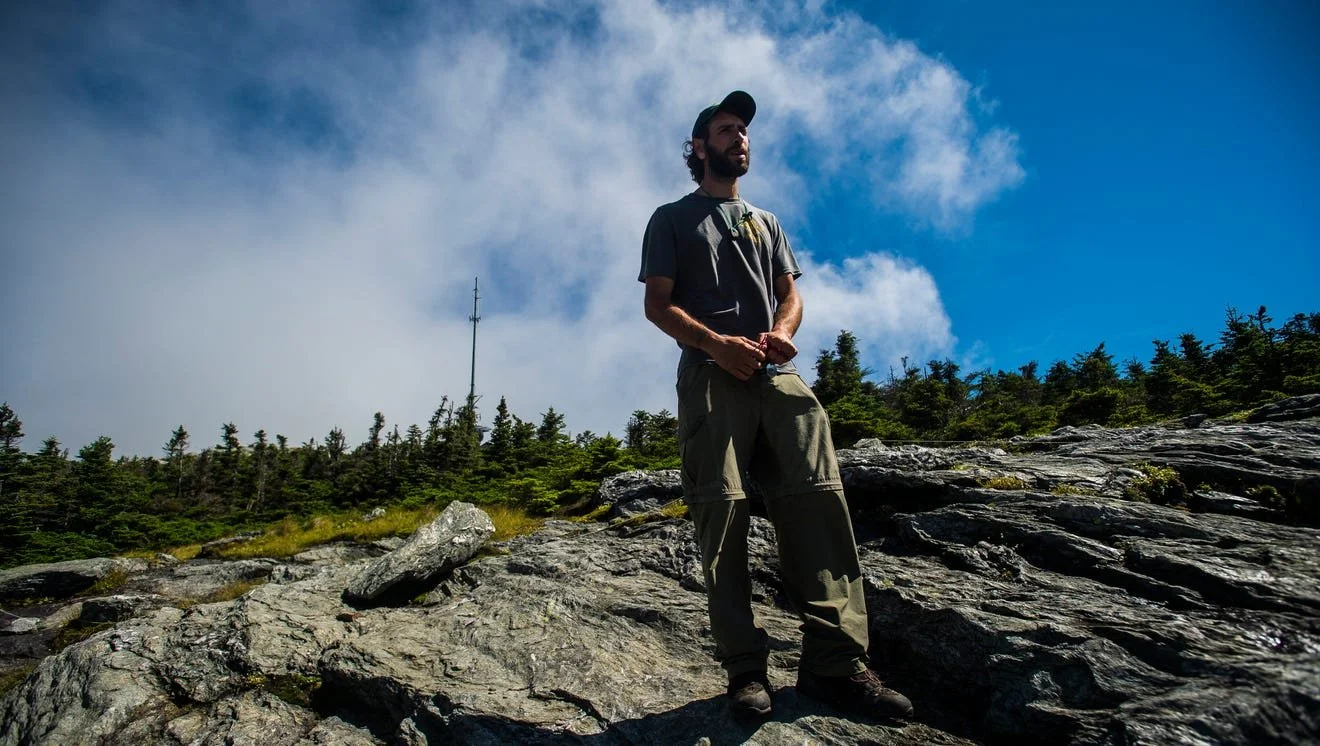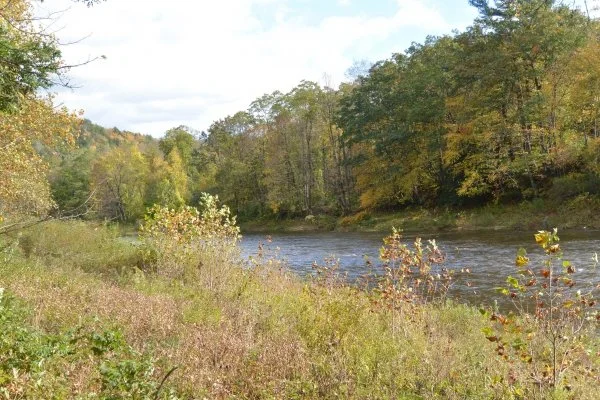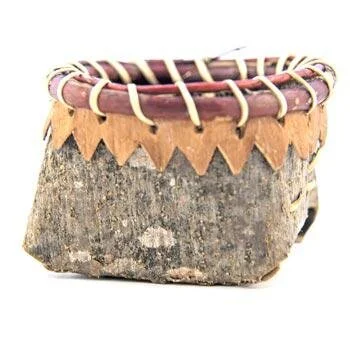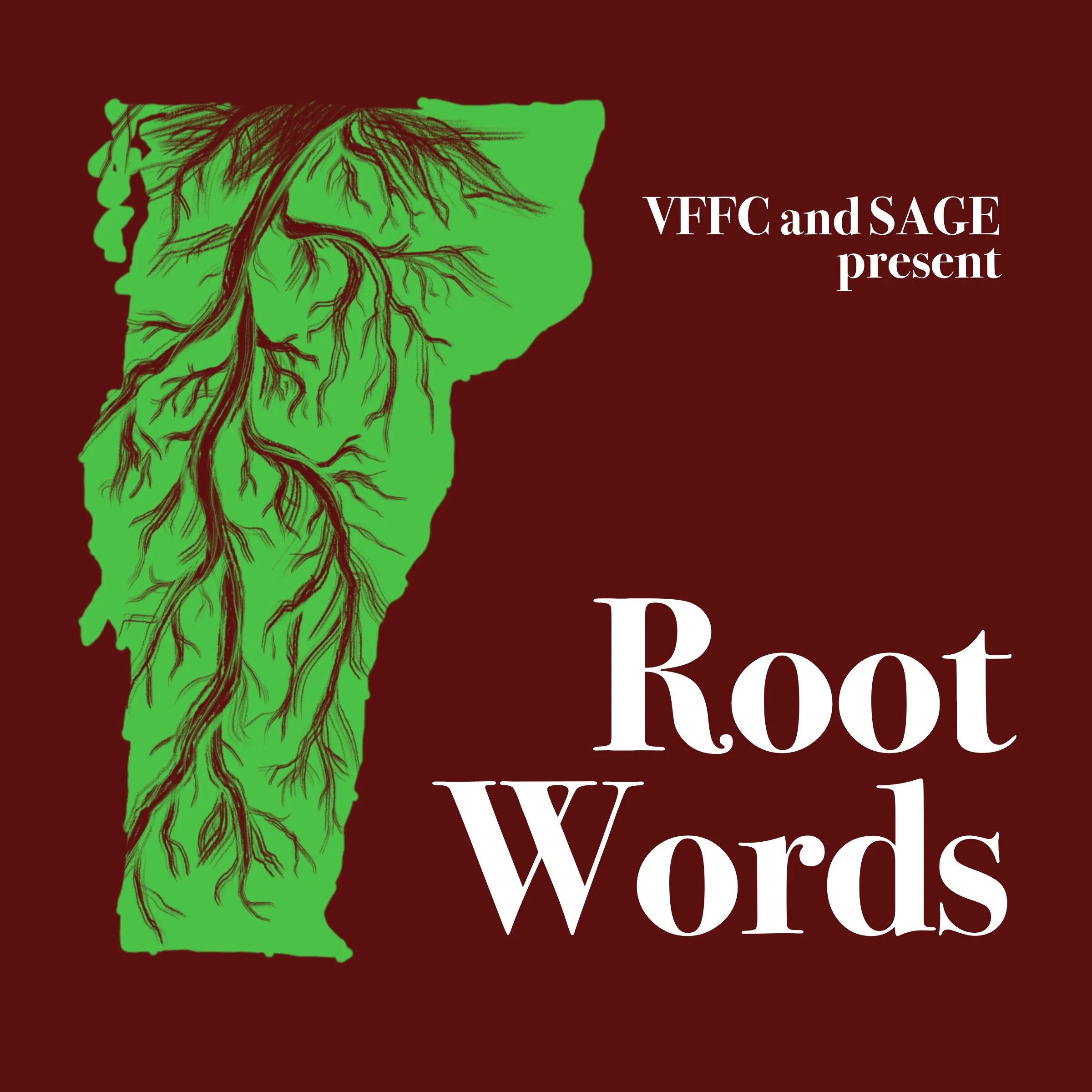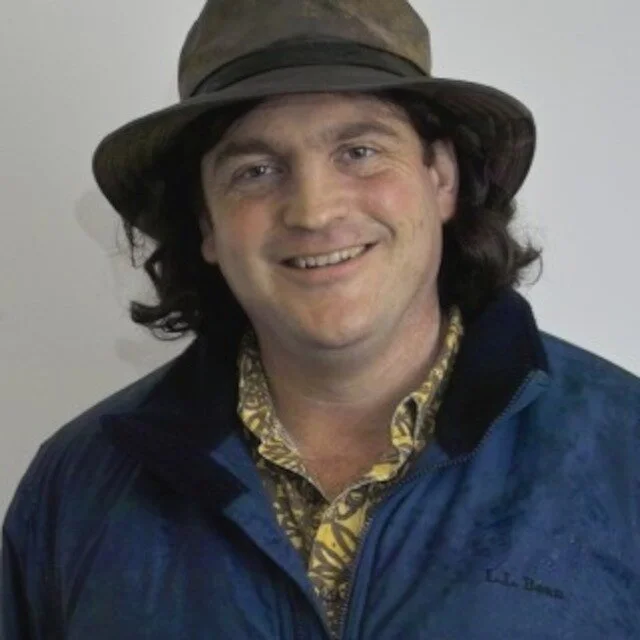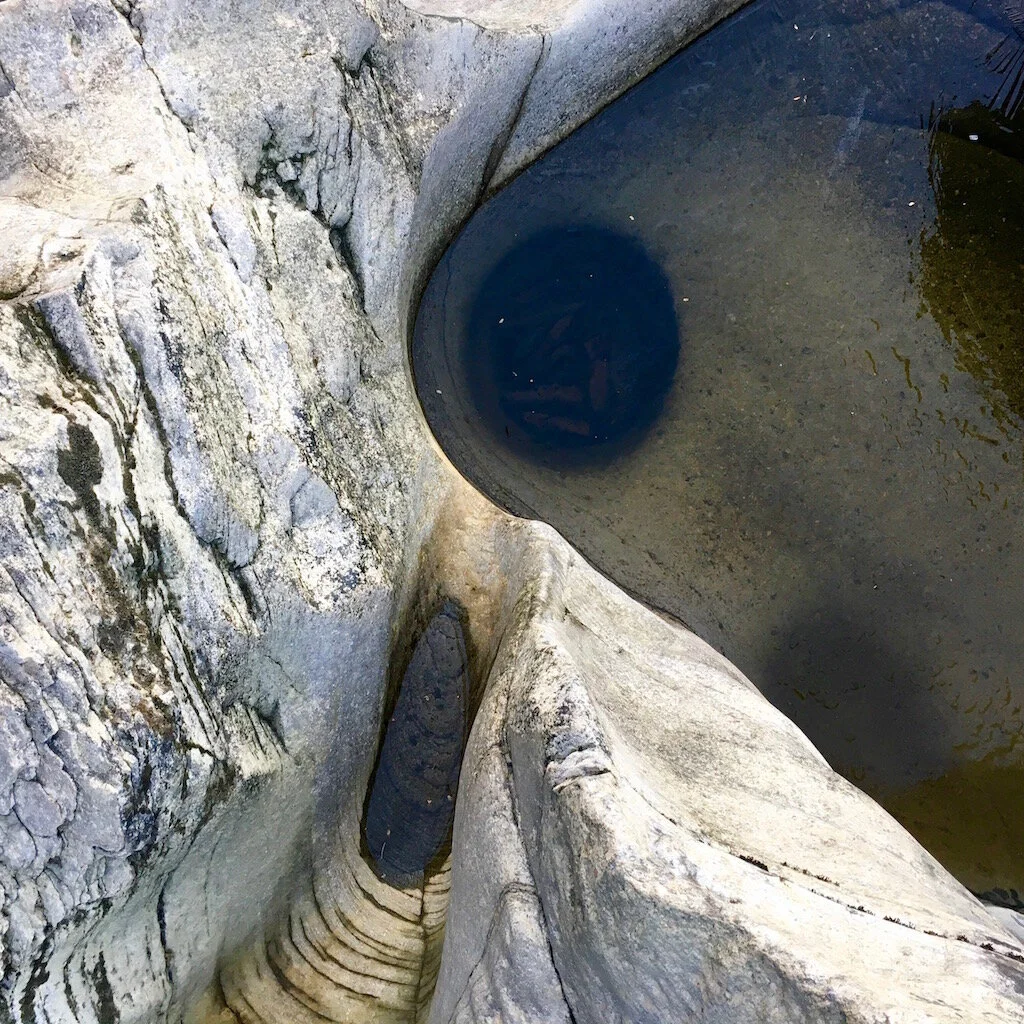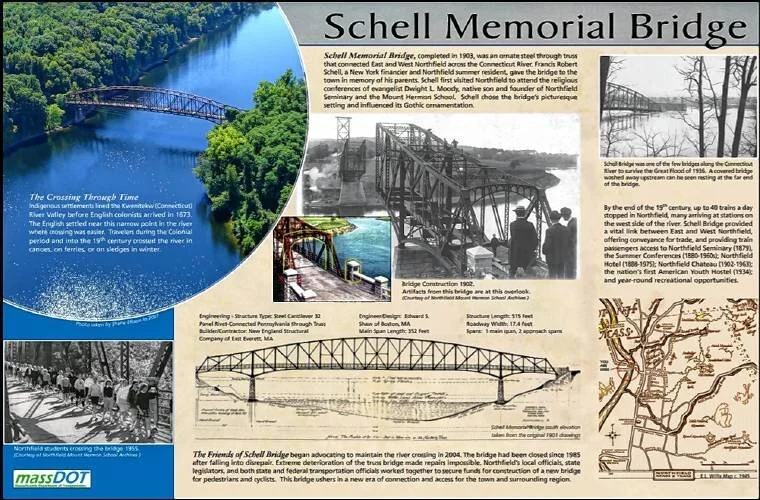The Connecticut: Our River
A preview of the soon-to-be-released tribute for the River from Quinetucket LLC. Filmmaker Vince Hogan has crafted a gorgeous hymn to the liquid heart of this landscape.
Green Mountain Club Unveils New Marker in Burlington
At the southern end of the Long Trail lies the tallest peak in Massachusetts, Mount Greylock. This mountain was once referred to as Grand Hoosuc or Saddleback by Abenaki people, Elnu Abenaki Tribe public liaison Rich Holschuh writes on the Green Mountain Club website.
Abenaki Reps Ask Town to Respect Possible Burial Grounds During Demolition
The demolition of the former Meeting Waters YMCA building took yet another turn Tuesday night. Representatives from the local Abenaki tribe asked the Rockingham Select Board that no additional excavation be done during the upcoming demolition of the town-owned dilapidated building.
Bellows Falls has several ancient Abenaki burial sites, said Gail Golec, an archaeologist from Walpole, N.H., who appeared before the board with local resident Diana Jones, who said she is an Abenaki descendant.
WCVB’s Chronicle: Susu CommUnity Farm and Honoring VT's Indigenous Heritage
Original episode aired November 8, 2021 - Filmed on location in Wantastegok with producer Sangita Chandra and videographer Bob Oliver; final cut with Shayna Seymour.
A program from Boston’s WCVB - ABC affiliate, part of the Chronicle Main Streets and Back Roads series.
Sibosen at the West River Trail’s Riverstone Preserve
Another piece of Abenaki history has been reclaimed with the creation of the Sibosen Trail. Pronounced SEE-boo-sehn, which is Abenaki for “river stone,” the trail runs along the West River in what’s known as the Riverstone Preserve, 21 acres of land owned by the Friends of the West River Trail that also includes 2,240 feet of shoreline.
VT Governor Scott’s 2021 Executive Proclamation Affirming Indigenous Peoples’ Day
Vermont Governor Phil Scott has re-affirmed the statutory establishment and observance of Indigenous Peoples’ Day statewide by Act 18 of 2019, with an Executive Proclamation. The document also cites Act R-114 of 2021 which offers a legislative apology for the state’s complicity in historic eugenics policies, and assures ongoing commitment to equity for Indigenous peoples in the state of Vermont.
Indigenous Peoples’ Day Celebration at Retreat Farm Makes It Real
Indigenous Peoples Day has been recognized in Brattleboro for years, and a celebration at Retreat Farm holds even more meaning. “This makes it real,” said Rich Holschuh, director of the Atowi Project based at the farm. “People are face to face learning from each other. It’s more than symbolic. It’s lived.”
Abenaki Experience Speaker Series at Morrill Homestead
On Sunday afternoons during September 2021, the Friends of the [Justin] Morrill Homestead in Strafford, VT hosted “The Abenaki Experience: Prehistory to Present,” a speakers’ series designed to foster an understanding of the long and complicated history of the indigenous people of this area.
CT River Museum Program to Explore Northeastern Indigenous Cultures
The Connecticut River Museum will be hosting a day of stories and songs with the Nehantic Native Nation and the Elnu Abenaki Tribe next month. The outdoor event is planned for Sept. 25 from 10 a.m. to 4 p.m. on the waterfront lawn at the foot of Main Street.
Legal and Cultural Barriers to Indigenous Protection of Sacred Places
The following article describes situations and conditions that also exist here in N’dakinna - Abenaki homelands - and the Northeast in general, often with even less oversight and protection, due to a 400-year-deep history of colonization, erasure, and contemporary ignorance. Petroglyph sites, hydroelectric dams, and historic industrialization are graphic demonstrations that you don’t need to look beyond your own familiar landscapes to witness the pattern of usurpation and disregard. It’s all right here, now.
Indigenous Food Sovereignty in Vermont
On this episode of Root Words, We talk with Chef Jessee Lawyer, Professor Fred Wiseman, and Chief Don Stevens. And we’ll hear little about the Abenaki community’s connection to this land, game animals, and traditional food ways, and we’ll hear how these living traditions have continued to evolve and grow through contemporary times.
Anthropology Meets Oral History and Intersects With Living Abenaki Culture
In this episode Moccasin Tracks talks with Anthropology Professor Robert Goodby who is publishing a new book with the help of The Harris Center and Cheshire County Historical Society in New Hampshire. His students from Franklin Pierce University in Rindge, NH. have been part of his historical digs and findings.
Canoe Trip on Contoocook River Highlights Abenaki Tribes
Daryl Peasley of the Abenaki Trails Project looked around at the crowd and smiled. Peasley, along with Heather Mitchell, director of the Hopkinton Historical Society, combined to sponsor a paddle trip on the Contoocook River to highlight the history of Native American activities along the river.
Cecelia Brooks Teaches About Traditional Foods and Medicines
Cecilia Brooks is an elder of Wolastoqey, Mi'kmaq, Mohawk and Korean ancestry who calls St. Mary's First Nation home. She specializes in traditional plant knowledge.
Brooks grew up in different countries because her dad was in the U.S. military. He was her first teacher of traditional Wolastoqey knowledge, but she got her first taste of foraging from her Korean mom.
Connecticut River Flows Through Brattleboro’s History
Over the years the Connecticut River has been many things for those who have lived along the waterway. When the Abenaki were the only people here the river was used for transportation, trade, cultural gatherings, and food. The river was then known as Wantastegok and native crops were grown along the riverbanks. For the Abenaki the river is much more than recreation and entertainment, it is the basis of indigenous society.
Reclaiming a Connection to the Land
One initiative to help do so at Retreat Farm is the Atowi Project, named for an Abenaki word meaning “together in space and time.” The project, now being formulated, is intended to “establish places for Native voices to be amplified, celebrated, and respected” and “help restore the Native relationship to the land and its inhabitants and communicate these vital perspectives to the broader community.”
Hydroelectric Relicensure and Traditional Cultural Properties on Kwenitekw
Both hydropower companies, Great River Hydro in Vermont and New Hampshire and FirstLight Power in Massachusetts, were required to do a Traditional Cultural Properties (TCP) study, in addition to archaeology and historic building studies, to identify and address hydropower facility impacts to Native People’s cultural considerations. Regrettably, neither company has adequately engaged the Abenaki and other Native communities in this work.
VT Indigenous Heritage Center Aims To Break Stereotypes With Expanded Exhibit
On June 5, a newly expanded exhibit exploring the history, culture and present experiences of Native people in what we now know as Vermont opens at the Ethan Allen Homestead in Burlington’s Intervale. Vermont Indigenous Heritage Center coordinator Fred Wiseman says there’s a lot to see in this compact exhibit…. "But where it gets interesting,” Wiseman says, “is my favorite exhibit, the Abenaki in Vermont 1800-1970. Because that's a period people really didn't believe that Native people were in here at the time.”
Northfield Selectboard Backs Name for ‘Pauchaug-Schell Bridge Greenway’
Contemporarily, she said Northfield residents may think of Pauchaug in relation to the Pauchaug Brook Boat Launch. However, she said the whole area has “been known as Pauchaug for hundreds if not thousands of years.” The Pauchaug Brook Wildlife Management Area spans the territory from the east side of the Connecticut River in Northfield toward Routes 10 and 63, and up from the Pauchaug Ramp Road to the New Hampshire state line. According to Jacque, the Indigenous word “Pauchaug” also has multiple rough translations. One translation, she said, means “at the crossing,” while another translation means “at the clear place.”
The Nolumbeka Mishoon Project
The concept of building the Peskeompskut (Great Falls) mishoon (dugout canoe) began during a lunchtime conversation between David Brule and Jonathan Perry at the 2nd Street Bakery on 4th Street in Turners Falls following a monthly Battlefield Grant meeting. Two years later the actual construction of the 18-foot-long vessel was started at the 2019 Pocumtuck Homelands Festival with 55 consecutive hours of fire carving and scraping and the goal of launching it the following year as part of the 2020 festival.

